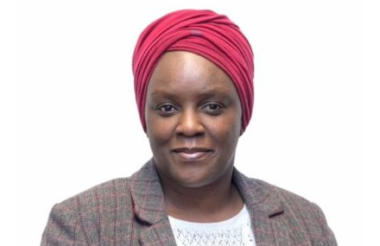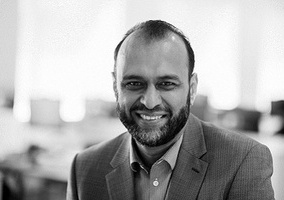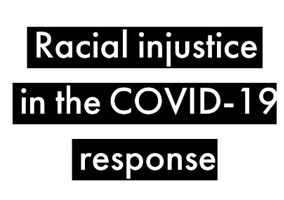The Covid-19 pandemic has shown that international development charities need to change the way they work in developing countries, according to the chief executive at Christian Aid.
Amanda Mukwashi was speaking at Civil Society Media’s Faith week, on a panel about leading through unprecedented times.
The event was chaired by Paul Parker, recording clerk at Quakers in Britain and speakers also included Paul Anticoni, chief executive at World Jewish Relief and Naser Haghamed, chief executive at Islamic Relief.
Mukwashi said it was important to have a “level playing field” when it comes to technology, as many people do not have access to good digital infrastructure.
“For development and humanitarian organisations we need to rethink how we work with people in developing countries - it is not business as usual,” she said.
Islamic Relief’s chief executive added that there needs to be a long-term investment in strengthening the local capacity of communities and investing in technology.
“The localisation agenda is going to be a priority with a massive investment in technology. We cannot afford to let people down again, enough is enough in creating reliance. They should be able to be self-sustainable and self-sufficient, and we need to focus,” Haghamed said.
“We need to empower them, we need to fund them, we need to develop them - and that is the only solution I can see,” he said.
Importance of interfaith work
Panellists also emphasised the importance of interfaith work.
Haghamed said: “We need more interfaith work… and there is quite a bit of work being done by INGO’s, but if we can do more work on that and be one big force, we can change the way society works”.
Mukwashi added: “I think while we came together in prayer, joyful activities, and giving, I think what it [the pandemic] exposed was that there were other latent areas of tensions within our communities - including in our communities as people of faith.”
Mukwashi spoke about the BLM movement as a “symbol of injustice” that exposed how BAME people were disproportionately affected by the virus.
She said: “As organisations I see our role as not allowing ourselves to go back to a state of slumber - we have been awakened.”
“I think we have to find a way of waking up to this,” she added.
Mukwashi explained: “We cannot afford to go back, when people lose trust they lose trust in all of us. I think we need to restore a high level of confidence in faith - and that faith moves mountains. I think we can do that much better together than individually.”
Anticoni, chief executive at World Jewish Relief, noted that there was a bridging together within communities.
He said: “I think there has never been a better time to show we share common platforms - we all know we share greater commonalities than differences, the power of faith communities coming together gives us some common language.”
Nonetheless, Anticoni warned: “At times there has often been a push for an interfaith dialogue when one does not know what the purpose is.”
He said although talk is healthy, “interfaith discussion just for the sake of it, without an end point, can lead to apathy”.
‘It kept me awake at night and rightly so’
Panellists also discussed the pressures of being in leadership positions during the pandemic.
Mukwashi said: “The pandemic found Christian Aid at the height of our change process, so we had to make very quick decisions and be very decisive about continuing to implement those changes we had made.”
The biggest challenge for her was giving bad news to people online, and making sure they are okay during lockdown.
Mukwashi said: “It kept me awake at night, and rightly so, because it is about people's livelihoods.”
Anticoni described the last six months as “traumatic and challenging and difficult and an immense burden of responsibility as a leader”.
He said: “Initially I thought I was very alone in having to deal with the problems I was dealing with.”
Anticoni said it took a while to share that he needed help, but reaching out to others gave some sense of sharing the burden and “a collective recognition that one wasn’t alone”.
Related articles
Elizabeth Balgobin: Covid-19 will make or break us, as leaders and as a society
Elizabeth Balgobin looks at how political and charity leaders compare when it comes to their early response to the coronavirus crisis.












